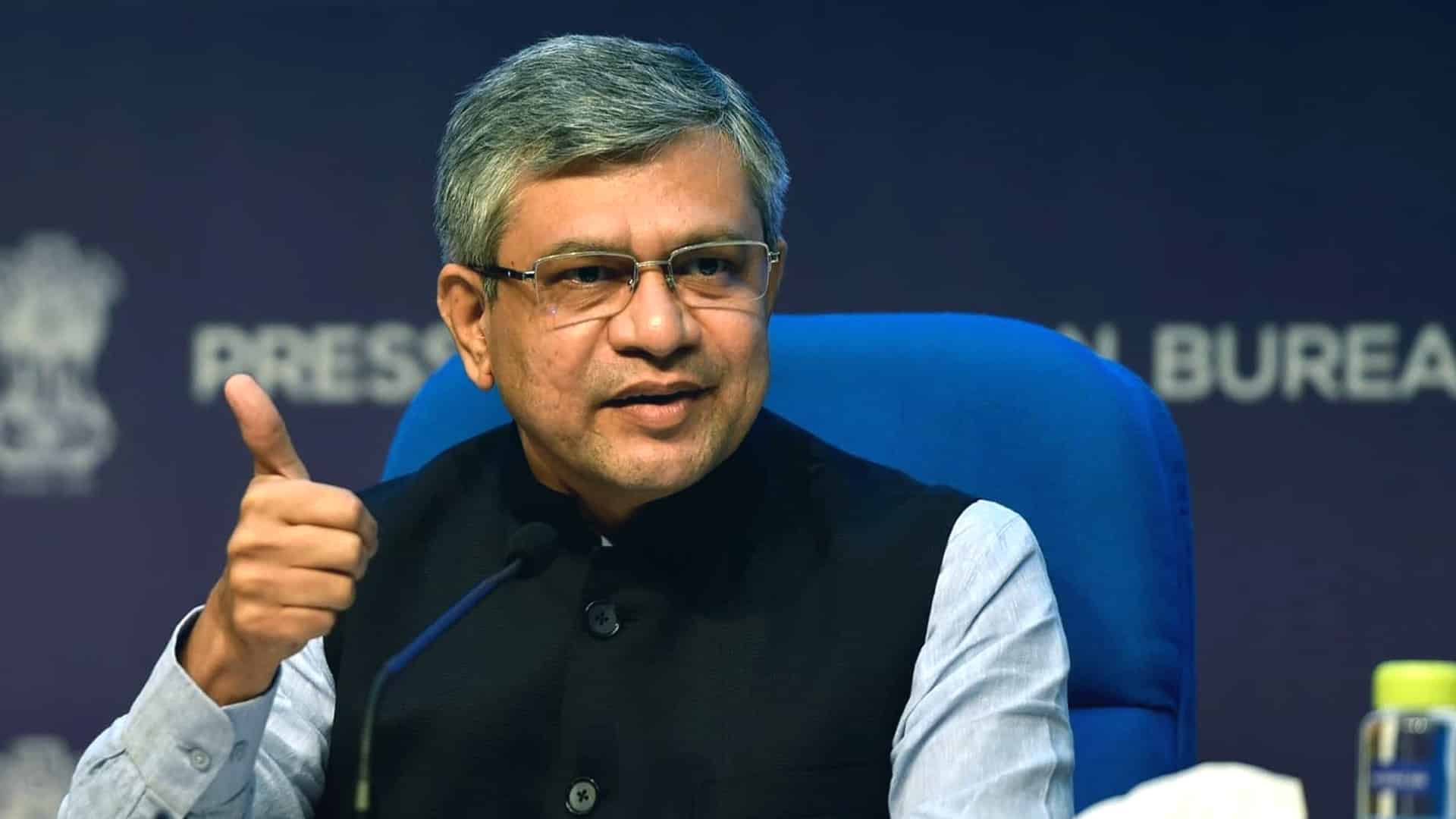Policy and Regulations
Data Governance Policy to leverage non-personal datasets available with govt for new, improved services to citizens: Vaishnaw
The National Data Governance Policy, announced in the Union Budget, will focus on leveraging the non-personal datasets available with the government in areas such as weather and projects to bring new and improved services to citizens, Telecom and IT Minister Ashwini Vaishnaw said on Wednesday.
The minister further said the National Data Governance Policy alongside the proposed personal data protection framework offers “two complementary structures” for India to go forward. Assuaging concerns, Vaishnaw emphasised that the National Data Governance Policy relates to non-personal data available with the government. He cited examples of non-personal datasets, say those pertaining to weather or even projects, and explained that such datasets can be used to provide better services to citizens.
Also read: Adani Enterprises calls off fully subscribed FPO, to return money to investors
“I want to categorically say the National Data Governance Policy relates to non personal data available with the government…these are non-personal data, like on weather and climate data, or even statistical data about various projects, their progress and other regional insights, or on traffic…there are multiple such datasets which can be used to provide better service delivery to the citizens,” the minister said at a briefing outlining the objectives of the policy. Vaishnaw said that with two complementary constructs — the National Data Governance Policy alongside the proposed personal data protection legislation in place, it is time to move forward.
The minister was replying to a question on whether the inputs on 2022 draft version of the policy will be taken into consideration, as also the thinking of the government around commercial data sets, as some private companies in the past had expressed hesitancy in sharing commercial datasets with startups. “We wanted that there should be clear personal data protection legislation in place by the time we announce this…actually implement the non-personal data governance framework…Now that the (digital personal data protection) Bill is already there, it has received very good feedback, globally I am hearing in Davos some people said India data protection bill should become template, not European GDPR…,” the minister said.
He termed the National Data Governance Policy as an “important policy decision” announced in the Budget. “Indian government has many datasets pertaining to non-personal data. For example, weather or climate related…datasets spanning 20-25 years…can we leverage to give farmers authentic predictions around weather and climate,” he said. These non-personal datasets, with the help of start ups and use of Artificial Intelligence, can bring new, improved services to citizens, the minister added. Finance Minister Nirmala Sitharaman, during her Budget 2023-24 speech on Wednesday, announced that a National Data Governance Policy will be brought out to unleash innovation and research by start-ups and academia. She added this will enable access to anonymised data.
The data governance framework had courted controversy last year, with certain privacy activists and companies raising concerns. The IT Ministry had mooted the draft ‘National Data Governance Framework Policy’ with the aim to realise the full potential of India’s digital government vision, maximise the efficiency of data-led governance and public service delivery and to catalyse data-based research and innovation. The ministry had released the Draft National Data Governance Framework Policy on May 26, 2022 for public consultation. “The Draft National Data Governance Framework Policy which contemplates for sharing of anonymised data if finalised would lead to risks for individuals in terms of greater profiling as such data can be often re-identified. To have sufficient checks a strong data protection law is first needed,” said Apar Gupta, executive director at Internet Freedom Foundation.
Meanwhile, on 5G, Vaishnaw said the initial targets have, in fact, been exceeded on rollout of next generation high speed connectivity services. The 5G service has already been rolled out in more than 200 cities, the pace of implementation faster than the previously anticipated timeline of March 31, 2023. The Telecom Minister also informed that India is making rapid progress in building indigenous telecom stack and it will be a telecom technology exporter in 2-3 years.
“In 2023, the focus under Atmanirbhar Bharat will be on 4G/5G telecom stack to be rolled out in BSNL and MTNL. The India telecom stack has been tested for 10 million simultaneous calls, and the testing completed in November-December. It will be rolled out,” Vaishnaw said. Two countries have formally evinced interest in implementing the telecom stack, once India puts it in place, the minister added. The minister spoke of the success of DigiLocker, and mentioned that three countries are on the verge of starting implementation of this “effective tool”.











































Pingback: WhatsApp bans 36.77 lakh accounts in India in December